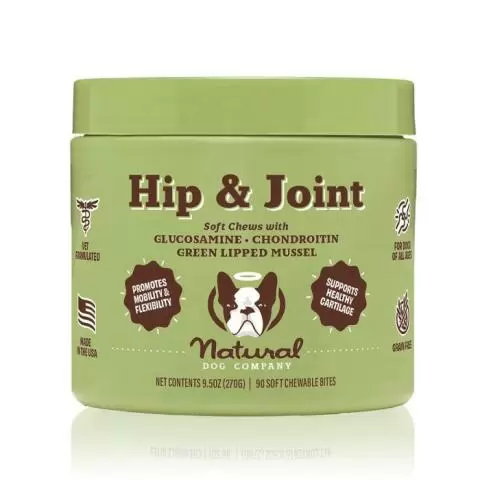Good News On Picking Kidney Failure In Cats
Good News On Picking Kidney Failure In Cats
Blog Article
Turmeric (Curcumin) Aids In Joint Health In Dogs And Cats.
Turmeric, and specifically its active ingredient curcumin has been identified for its potential benefits for supporting joint health in both dogs and cats. What turmeric can do for pets' joint issues:
Anti-inflammatory Properties
Reduction of Inflammation:
Curcumin has anti-inflammatory effects. It inhibits the proteins and enzymes that trigger inflammation.
Curcumin eases inflammation of joints, and eases the swelling and pain that is due to arthritis and other joint disorders. This increases the comfort and mobility of pets.
Antioxidant Effects
Oxidative Stress:
Curcumin has antioxidant properties. It neutralizes free radicals that cause cell damage and cause inflammation.
Benefits: By reducing oxidative stresses it is possible to protect your joints from injury and ensure joint health.
Pain Relief
Natural Painkiller:
Curcumin regulates the pathways of pain to ease discomfort and lessen the sensation of it.
Benefits: Natural relief from joint pain can allow pets to live an active lifestyle.
Cartilage Protection
Cartilage Breakdown and Prevention
Curcumin acts by blocking enzymes that make cartilage break down.
Benefits: By defending cartilage from degrading it is possible to maintain the integrity and function of joints in animals that suffer from joint pain.
Immune System Modulation
Balanced Immune Response:
Curcumin is a stimulant on the immune system. It helps to promote the body's natural response to inflammation.
Benefits of a well-balanced immune response are: It can reduce inflammation and help maintain joint health.
Overall Benefits of Joint Health
Increased mobility: Turmeric reduces inflammation and pain, while also preserving cartilage. This may help animals who suffer from joint problems improve their mobility.
Enhanced Quality Of Life: Pets that are less discomfort and are more mobile tend to be active and engaged. This results in greater quality of life.
Use and Considerations
Dosage and Administration: The right dosage of curcumin or turmeric for pets is determined by their weight, size, and their specific health requirements. Follow the directions on the label, or those given by your doctor. It is normal to combine curcumin and black-pepper extract (piperine) which enhances its absorption.
Turmeric supplements for pets are available in capsules (or powders) as well as chews (or chewables), and other forms. The safety and effectiveness of a product that is pet-specific are ensured by choosing a high quality pet-specific product.
Side Effects: Although generally safe, high doses of turmeric can cause stomach upsets in certain pets. It is recommended to begin at a lower dosage and gradually increase it. This can help to reduce side consequences. It is important to keep an eye on the reactions of your pet.
Summary
Turmeric and, more specifically the active ingredient curcumin has numerous benefits to joint health. Anti-inflammatory, pain-relieving, and antioxidant properties of turmeric help to reduce inflammation and joint pain enhance joint function and safeguard cartilage. Regular use of turmeric supplements can improve the mobility and health of pets suffering from joint problems. Read the most popular yeast infections in dogs examples for blog advice including cushings disease alternatives, pet supplements for pets with hair loss, canineceuticals, pet supplements for pets with fear of aging, cushings disease natural treatment, pet chondroitin supplements, pet joint supplements, pet supplements for pets with joint stiffness and more.
What Does Omega-3 Fatty Acids Assist Animals And Cats With Kidney Failure?
Omega-3 fatty-acids, EPA and DHA in particular (docosahexaenoic and eicosapentaenoic fatty acids) offer numerous benefits to kidney health and well-being. Here are a few ways they can aid in managing kidney disease:
Anti-inflammatory Properties
Reduction of Inflammation
Function: Omega-3 acids are anti-inflammatory and lower the production of Eicosanoids, cytokines as well as other substances that cause inflammation.
Benefits - By decreasing the inflammation in kidneys, Omega-3s are able to slow the extent and severity of damage to the kidneys.
Blood Pressure Regulation
Low Blood Pressure:
Function: The omega-3 fatty acid can help to regulate blood pressure by improving vascular functions and reducing inflammation within the system.
Benefits - Lower blood pressure can help protect remaining kidney functions as well as in preventing the progression of kidney disease.
Proteinuria Reduction
Reducing Proteinuria:
Function: Omega-3s assist in reduce proteinuria (the leakage of proteins into the urine), a problem which is a common occurrence in kidney disease.
Benefits: Reduce proteinuria to prevent further kidney damage.
Glomerular Filtration Ratio (GFR), Preservation
Supporting Kidney filtration:
Function: The omega-3 fats are vital to keeping the integrity of the kidneys' glomerular filtering process.
Benefits: Keeping GFR levels stable levels is crucial for maintaining kidney function and helping to prevent the development of chronic illness.
Appetite Stimulation (nutritional Support)
Improve appetite
Omega-3s may improve the appetite of animals who suffer from kidney failure. They also enable them to eat more.
Benefits: A higher intake of nutrition improves overall health and aid in maintaining body weight and muscle mass, which is important for pets with kidney disease.
Cardiovascular Health
Helping Heart Health
Function The Omega-3 fatty acids are beneficial to cardiovascular health by reducing inflammation as well as lowering blood pressure and enhancing the lipid profile.
Benefits Increased cardiovascular fitness can reduce the risk of complications related to kidney failure such as heart diseases and can improve overall health.
Antioxidant Effects
Reducing Oxidative Stress:
Function: Antioxidant properties found in omega-3 fatty oils aid in reducing the oxidative strain on kidneys.
Benefits: Reduced the oxidative strain protects kidney cell damage and promotes improved kidney function.
Use and considerations
Dosage, administration, and dosage: The amount of omega-3 acids to give will depend on your pet's age and weight, health and size. Please follow the advice of your veterinarian or the instructions provided on the label. Omega-3s are derived from supplements of fish oil, which specifically designed for pets.
Omega-3 supplements that are available for pets are available in various forms. Capsules, liquid oils, and chews are all options. It is important to select an item of high-quality to ensure safety and efficacy.
Omega-3 supplements generally are safe, however some pets might have stomach issues. You can reduce side adverse effects by beginning at an initial dose and gradually increasing it as time goes by. It is important to check for reactions that could cause adverse effects, like nausea or diarrhea.
We also have a conclusion.
Omega-3 fat acids offer significant benefits in the treatment of kidney failure, both in cats and dogs. Their anti-inflammatory, blood pressure-lowering, proteinuria-reducing, and appetite-stimulating properties help support kidney function and overall health. Regularly taking omega-3 supplements can slow the progress of kidney diseases, increase quality of life, and enhance the well-being of pets suffering from kidney disease. View the best dog herbalist tips for site tips including pet kidney supplements, pet goldenseal supplements, pet skin and coat care, pet papain supplements, pet fish oil supplements, pet supplements for pets with fear of abandonment, pet anxiety relief, pet licorice supplements and more.
What Are The Ways That Cat And Dog Affected By Yeast Infections? Oregano Oil?
Oregano essential oils are utilized in certain situations as a natural remedy against yeast infections. It has powerful antimicrobial properties, and it works effectively against fungal pathogens. Oregano oil can be effective against yeast infections.
Antifungal Properties
Active Compounds:
Oregano Oil's Function: Oregano contains antimicrobial agents like carvacrol, thymol and thymol.
Benefits: These compounds have been proven to stop the growth of fungi, which includes Candida species that cause yeast-related infections.
Antimicrobial Activities
Broad-Spectrum Action:
Oregano oil is a potent antimicrobial ingredient that offers a wide spectrum of activity. It can be used to treat many pathogens including bacteria and molds.
Benefits: The ability focus on fungal growth can help reduce yeast infections in cats and dogs, especially in areas like the ears and skin.
Anti-inflammatory Effects
Reduce inflammation
Oregano oil has anti-inflammatory properties and can alleviate symptoms of yeast infections, including redness and itching.
Benefits by reducing swelling oregano is a great way to alleviate and heal irritations or inflamed skin or mucous tissue.
Support Immune Function
Immune Modulation:
Oregano essential oil improves the immune system by boosting the body's natural defences against infection.
Benefits: A more robust immune system will aid in the fight against yeast infections. It can also prevent them from returning.
Use and Considerations
Topical application: Prior to applying oregano to the skin apply it topically, dilute it using an oil copyright (such as coconut oil or olive oil). The most common dilution ratio is about 1-2 drops of oil per tablespoon of copyright oil.
Avoid Ingestion. Oregano oil may be toxic when consumed in large quantities.
Patch test: Before you begin to use the product on an area of a tiny size to test for sensitivity or adverse reactions.
Consultation With Veterinarians: Consult your vet prior to applying oregano to treat yeast infections in animals. They will guide you on the right dilution methods as well as application methods and risks that may be associated with your pet.
Conclusion
Oregano oil is antimicrobial and has properties which makes it a suitable treatment for yeast infections in dogs and cats. Its ability in reducing inflammation, stopping fungal overgrowth and boosting immune function could help in tackling yeast infections effectively. Be sure to use it under the supervision of a veterinarian to make sure your pet is secure and efficient. It is important to follow the advice of your veterinarian when you use oregano in an overall treatment plan for yeast infections in pets. View the best what is it worth on best vitamins for dogs for website examples including pet dental supplements, dog supplements, pet energy supplements, pet supplements for pets with fear of crates and pens, pet whey protein supplements, pet supplements for foster pets, pet supplements for pets with shedding problems, pet echinacea supplements and more.